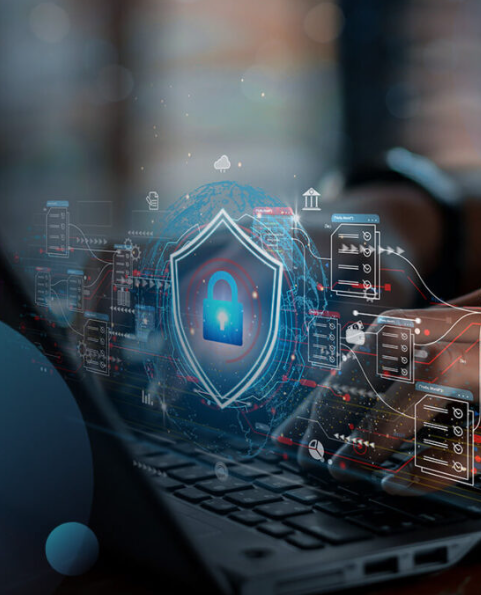Empowering Enterprise Security Through the Deputy CISO Role
- 233 Views
- admin
- 06/23/2024
- Cybersecurity
In today’s complex digital landscape, the role of the Chief Information Security Officer (CISO) is no longer confined to overseeing cybersecurity policies and managing incidents. As businesses scale and technology becomes more deeply embedded in daily operations, many CISOs find their responsibilities extending into help desk management, infrastructure oversight, and business applications. This natural expansion often signals a critical inflection point—one that may require the appointment of a Deputy CISO.
Why Organizations Should Consider a Deputy CISO
As enterprises evolve, so do the demands placed on their security leadership. Below are key situations where bringing on a Deputy CISO is not just beneficial, but essential:
1. Increasing Breadth of Responsibilities
When the CISO is expected to supervise functions outside of traditional security—like infrastructure, data governance, or fraud prevention—it becomes increasingly difficult to balance strategic thinking with operational execution. A Deputy CISO can relieve some of this load, maintaining focus on core cybersecurity objectives.
2. Managing a Growing Security Team
Larger teams require more oversight, coaching, and coordination. A Deputy CISO ensures that team members receive direct attention and leadership, which improves performance and responsiveness across the organization.
3. Succession Planning and Continuity
No one stays forever. Establishing a capable second-in-command ensures a smoother transition if the CISO exits. This proactive planning safeguards the integrity of the security program and offers internal growth opportunities.
4. Strategic Business Integration
Security is no longer a siloed function. When organizations aim to weave security into product development and business strategy, the CISO must engage more externally—collaborating with stakeholders, staying current on trends, and aligning goals. The Deputy CISO, meanwhile, anchors day-to-day operations.
5. Preparing for Future Leadership
When multiple team members show leadership potential, a Deputy CISO can provide mentorship and direction, helping to develop future-ready talent and ensuring organizational resilience.
6. Organizational Maturity and Readiness
For startups or early-stage security teams, a Deputy CISO may be premature. But as businesses mature and security becomes integral to operations, having a dedicated Deputy supports long-term growth.
The Core Duties of a Deputy CISO
A Deputy CISO wears many hats—technologist, communicator, strategist, and mentor. Here are the main responsibilities they are expected to fulfill:
- Technical Expertise: Deep understanding of security frameworks, threats, and solutions.
- Translating Security for Business: Clearly articulating risks and needs to executive leadership and aligning security objectives with business goals.
- Team Leadership: Guiding, mentoring, and inspiring the security team to evolve and perform.
- Stakeholder Engagement: Collaborating with internal departments to embed security early in development cycles.
- Talent Development: Shaping the next generation of leaders within the security function.
Building a Strong CISO-Deputy Partnership
The relationship between a CISO and Deputy CISO is foundational to a resilient security strategy. Trust, open communication, and mutual respect form the bedrock of this partnership. Here’s how they can work together effectively:
- Clear Communication: Regular dialogue allows for sharing differing perspectives and aligning on priorities.
- Mutual Growth: As the CISO delegates more authority, the Deputy should rise to meet these new challenges, eventually representing security at high-level discussions.
- Complementary Skills: The best partnerships take advantage of each leader’s strengths—whether technical depth, business acumen, or people leadership.
- Transparent Feedback: Honest conversations and openness to critique help both parties grow.
- Shared Vision: A common understanding of the security program’s direction fosters collaboration and focus.
A Strategic Asset for Modern Enterprises
More than just a backup, a Deputy CISO serves as an essential leader in their own right—managing the intricacies of the security function while allowing the CISO to lead with vision. This two-tiered structure ensures that security is not only managed effectively but is also leveraged as a competitive advantage.
By investing in this dual leadership model, organizations can stay agile, resilient, and ahead of emerging threats—while empowering their teams and strengthening alignment with broader business goals.
Recent Posts
- How AI is Revolutionizing Architectural Design: A Look at Tools, Trends, and the Future
- Streamlining Cyber Risk Assessments Through Automation
- Understanding the Difference Between Blockchain and Distributed Ledger Technology
- Is Bitcoin Mining Still a Viable Venture in 2025?
- Exploring AI: Unveiling Possibilities, Challenges, and Future Implications

